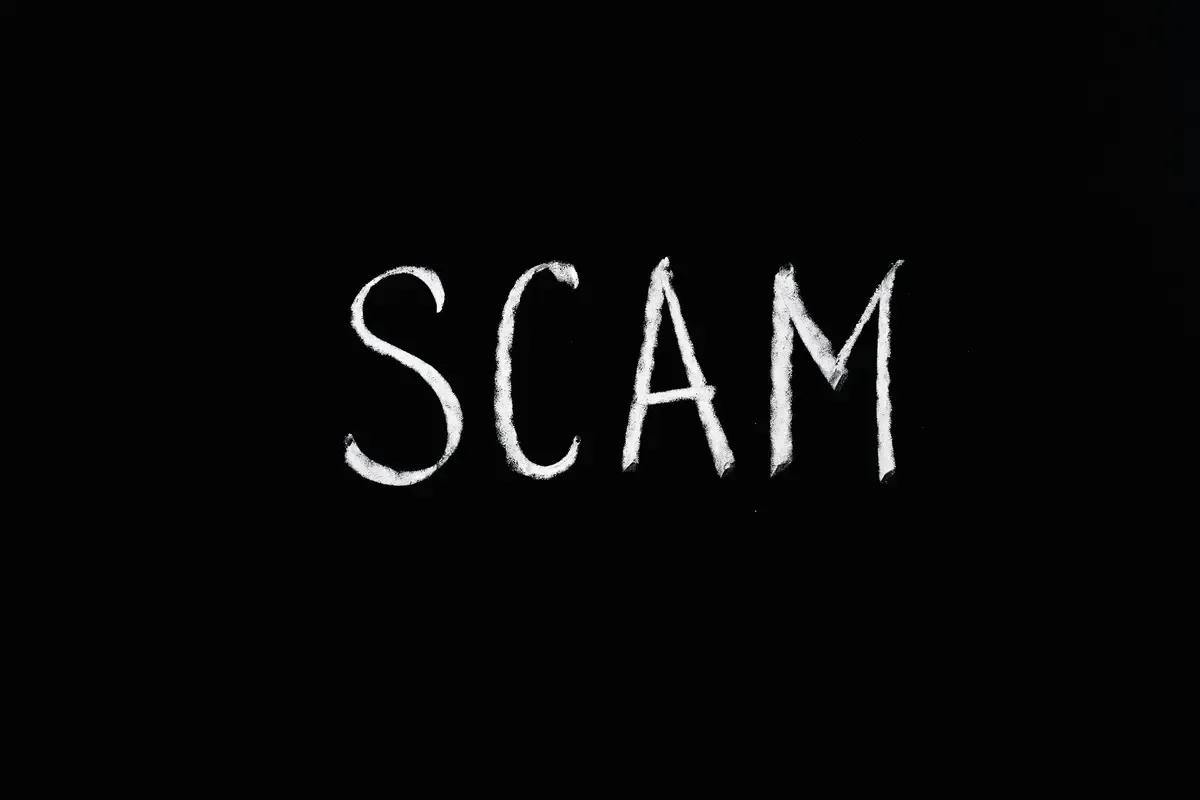Traveling is an adventure that is tagged with it is the possibility of being scammed. In this article, we are going to dive into how to identify and avoid the most common travel scams.
Traveling is an adventure that is tagged with it is the possibility of being scammed. In this article, we are going to dive into how to identify and avoid the most common travel scams.
What is a travel scam?
A travel scam is one in which devious people attempt to remove cash or items from travelers. Tourists are susceptible to scams because they may be unaware of the place they are in. Knowledge of what to watch out for will keep you from falling into these traps and maintain the fun in your travels.
Why Are Travelers Targeted?
People who journey to strange lands become easy prey for scammers as they are often naive about the places they visit and most local con tricks. Furthermore, they tend to possess cash, credit cards among other precious belongings like mobile phones and digital cameras. There are several techniques through which swindlers can exploit these elements; however, understanding them will give you an upper hand over them.
Common Travel Scams and How to Avoid Them
1. Fake Taxis and Car Sharing Scams What is It?
What is it?: Scammers posing as taxi drivers or car share drivers may overcharge you or worse steal your stuff. They may approach you at an airport, a train station, or a busy street and offer you a ride at very low prices or with a convincing sales pitch.
How to Avoid It: Always use official taxis or car-sharing services. When arriving at an airport or train station, head directly for the official taxi stands. If you carpool by using an application, first make sure the driver and car match the details provided by the app before you get inside. Check the license plate of the car and the photo of the driver, too.
2. Too-Expensive Tourist Traps
In places that attract large numbers of tourists, some enterprises charge well above the regular prices for food, souvenirs, or services. Most of these business ventures use neon signs or special offers to attract tourists.
How to Avoid It: Do your homework in advance to know the best places to go. Look for restaurant reviews, suggestions of stores, and what to see. The old saying is, if something looks too good to be true then trust me, more likely it is. Make sure you know what you are buying before you pay for it. Also, look for items in areas that are not very popular among tourists.
3. Currency Exchange Scams
What is It?: Some of the currency exchange service scams include giving you less than desirable rates or having hidden fees. Results can be from anything like receiving a lesser amount of cash than anticipated, down to being overcharged for the money exchange.
How to Avoid It: Use exchange services from reputable sources such as banks or official exchange offices. Shop around for the best rate at a few different outlets before exchanging your money. Avoid exchanging cash with strangers or using the exchange services in hotel lobbies; these invariably offer poor rates.
4. Pickpocketing
What is It?: Pickpocketing is a job of thieves carried out in highly crowded areas of towns to steal wallets, phones, or any other valuable from your pocket or bag. Normally, they use distractive actions or operate in groups to carry out their moves.
How to Avoid It: Keep your valuables in a safe, zipped pocket or use a money belt. Be alert when surrounded or in crowded places or tourist spots. Use anti-theft bags with lockable zippers and avoid exposing expensive items like jewelry. If you feel someone bumping into you, immediately check your belongings.
5. Accommodation Scams
What is it?: Some scammers make listings for hotels or rental properties that do not exist or are radically different from what is advertised. They ask you to pay in advance, then disappear.
How to Avoid It: Make your booking via mainstream websites and check comments from other travelers. Confirm directly with the hotel or owner before your arrival. Pay using a credit card, which not only adds security but also possibly resolves disputes.
6. Bogus Tour Guides
What is It?: Some scams involve individuals posing as tour guides, offering overly priced tours or VIP tours. They take money from the victim for very poor services or no service at all.
How to Avoid It: Before booking any tour company or guide, do your research. Check reviews online and verify their qualifications. If at all possible, book tours through official tourism boards or reputable travel agencies. Don't accept offers from individuals who approach you on the street.
7. ATM Skimming
What is it?: Skimmers attach devices on the ATMs that record your card information when you make a withdrawal of cash. This stolen information will be subsequently used in accounting for unauthorized transactions.
How to Avoid It: Make use of ATMs in well-lit areas, busy, and preferably inside banks. Always inspect the ATM for any attachments and tampering before using it. Cover the keypad with your hand while entering the PIN to shield the entry of the PIN. Also, be wary of ATMs which may appear out of place or have some evidence of disrepair.
8. Free Gift Scams
What is It?: Scammers offer you "free" gifts or services and then ask for money or claim it is for a donation. They may confront you on the street or in a public place.
How to Avoid It: Exercise caution for promises made by unknown sources especially when they are insisting that you have to pay or provide more details of yourself. If anyone is offering any gift or making any favor, little do they know, tell them to do one thing.
9. Internet and Wi-Fi Scams
What is It?: Scammers establish fake Wi-Fi hotspots with the expectation of intercepting your personal information once you have established a connection. They may refer to their network with a name that sounds like the service you are looking for.
How to Avoid It: Use a VPN whenever accessing public Wi-Fi. Refrain from accessing your sensitive accounts or making any financial transaction on any network that is not secure. Only connect to known and secure Wi-Fi networks; double-check the network name with the establishment providing the service.
10. Impersonation Scams
What Is It?: Scammers may call pretending to be police or another authority to demand money or personal details from you. They might even use pressure tactics.
Avoiding It: One should always ask for the ID if any person claims to be some authority. In that case, if they doubt someone, one should call the local authorities and verify his identity to avoid fraud. Never share personal information or money unless the authenticity of the request is verified. If uncomfortable, find help from trusted passersby or businesses.
11. Scams Involving Lost or Stolen Wallets
What is It?: Scammers may "find" your lost wallet to keep your lost opportunity to ask for a reward or steal even more from you. They may come to you and say they found your wallet but could be trying to scam you.
How to Avoid It: When your stolen wallet is returned, thank the person, check first the contents, and then give a reward. Be more cautious of people who 'need' to help you and request in return money or other compensation for their services. That way, you will make sure all things in your wallet are there before you give a reward.
12. Bogus Surveys and Contests
What Is It?: Scammers may promise you a prize or a pretend survey to get information from you or get money from you. They may email or text message you, or could contact you in person.
Avoidance: Be cautious about unsolicited questionnaires or lotteries. As a general rule, verify the validity of an offer before divulging personal data. Only register with renowned and established survey companies or competitions and never respond to letters or offers which may seem suspicious.
General Safety Tips for Travellers
Stay Informed
Before traveling, research common scams within your destination. Knowing what to look out for could make you less likely to become a victim. Check out travel forums, guidebooks, and official government travel advisories for information on possible frauds and staying safe.
Trust Your Instincts
If something does not feel right, trust your instincts. It would be wiser to be on the safe side rather than getting into suspicious situations. There's nothing wrong with simply walking away when you are uncomfortable with a particular situation or unsure and seeking advice later from credible sources.
Keep Your Values Safe
Keep valuables as secure as possible. Consider a money belt or anti-theft bag. Do not have lots of money on you, and it is wise to keep relatively valuable documents like your passport and travel insurance safe. If you are in a hotel, use the safety deposit box present in the hotels if at all there is one. Otherwise, a lockable, secure bag is a good alternative.
Use Reputable Services
During your stay, always utilize well-reviewed and reputable services around transportation, accommodation, and tours. Review testimonies of services and ask for recommendations from people you trust. Avoid making last-minute plans and being tempted to take an offer from somebody who may approach you on the street.
Have Emergency Contacts
Also, keep a list of local authorities, your embassy, and your bank for emergency contacts. This list might be helpful if you are in some sort of problem. So, store this information in both digital and physical formats for your convenience.
Be Cautious about Your Environment
Be very observant and aware of what happens around you, either at home, in the midst of a crowd of people, or unfamiliar territory. Leave out distractions of any kind that may easily set you up to be a victim of fraudsters.
Copies of Important Documents
Make photocopies or electronic scans of important documents like passports, visas, and travel insurance. This keeps the copies away from the originals in case of loss or theft. You can at least replace what was lost fairly quickly, and prove your identity if that happens to be necessary.
How to Deal with a Scam
Reporting the Scam
If you are a victim of the scam, then this should be reported. Information about the scam should be given to local authorities or your nearest embassy. It may help you prevent others like you from becoming victims of the same scam and may also assist in recovering any stolen items.
Cancellation of Cards
If this credit or debit card information was compromised, inform your bank forthwith and request cancellation to avoid further unauthorized transactions. Ask for a replacement card for continued use. Also, check your account for any suspicious activity.
Getting Help
Contact your travel insurance provider to assist you in recovering the financial losses or an emergency resulting from the scam. Some of the losses might be covered under your travel insurance, and it can also help in dispute resolution. Early notification to the insurance company will allow you to initiate the claims process.
Conclusion
Travel should be enjoyable and enlightening, not nerve-racking and full of scams. Informed and wary but prepared, you can confidently avoid a few common travel scams that will ensure your journey is both safe and remembered. Trust your instincts. Use reputable services. Keep your valuables secure. With these tips in mind, you will be well-equipped to handle any potential scams and make the most of your travels. Safe travels!


























